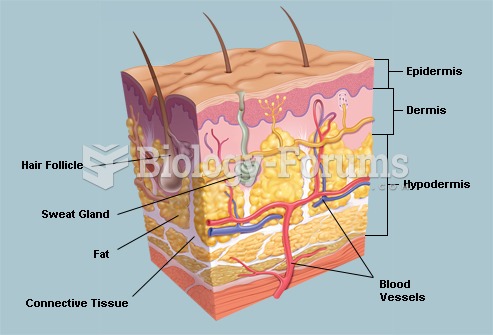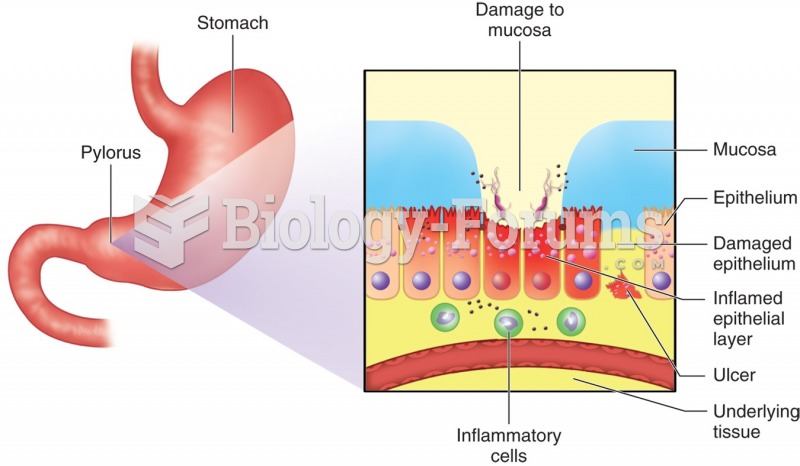|
|
|
More than 34,000 trademarked medication names and more than 10,000 generic medication names are in use in the United States.
Blastomycosis is often misdiagnosed, resulting in tragic outcomes. It is caused by a fungus living in moist soil, in wooded areas of the United States and Canada. If inhaled, the fungus can cause mild breathing problems that may worsen and cause serious illness and even death.
As of mid-2016, 18.2 million people were receiving advanced retroviral therapy (ART) worldwide. This represents between 43–50% of the 34–39.8 million people living with HIV.
If all the neurons in the human body were lined up, they would stretch more than 600 miles.
More than 150,000 Americans killed by cardiovascular disease are younger than the age of 65 years.







